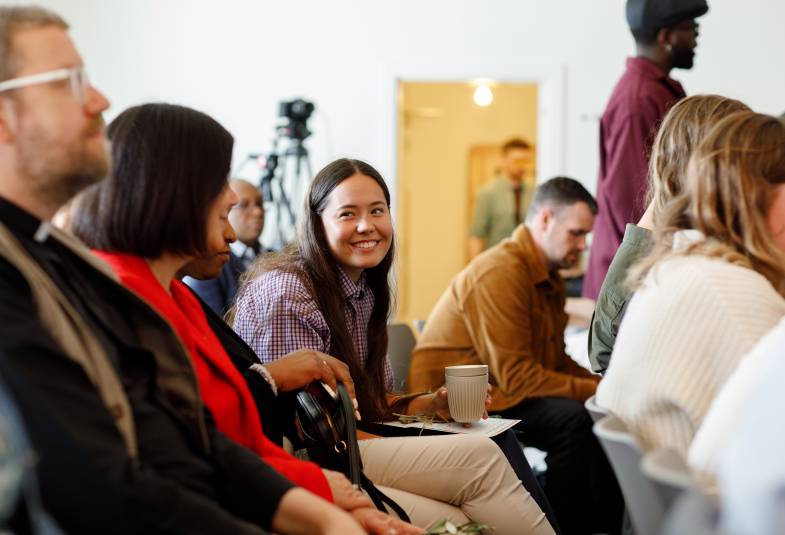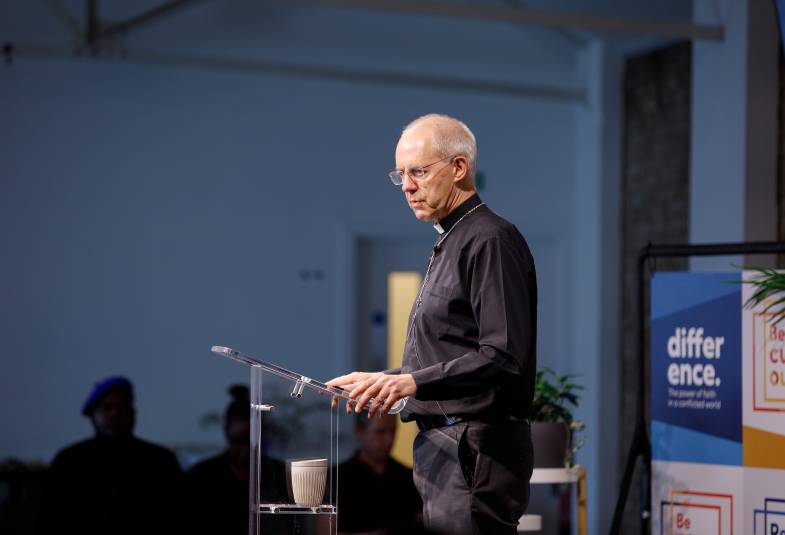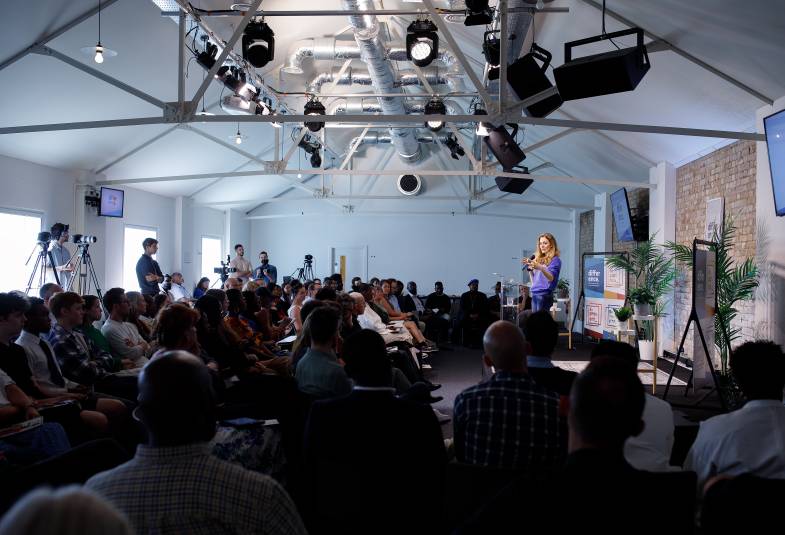07/07/2023

In his annual keynote lecture on reconciliation, the Archbishop stressed the importance of empowering young people to become leaders who can build peace in their communities.
Young people have the power to be agents of peace, the Archbishop of Canterbury told a gathering of educators, youth workers, Christian leaders and others working directly with young people.
In his annual keynote address for the Difference programme yesterday (Thursday 6th July), Archbishop Justin emphasised that peace and reconciliation are at the heart of the Christian story and mission, and stressed the importance of empowering young people to become leaders who can build peace in their communities.

In the speech at King’s House in north London, the Archbishop acknowledged how deeply committed young people are to values of justice and equity, as well as their deep desire for peace and reconciliation.
Research shows that the generation known as ‘Gen Z’ (those who are 11 to 26 years old) place a high value on diversity and prioritise some sort of peaceful activism, with 70% involved in a social or political cause. They care deeply about sustainability and climate justice. As well as speaking about inequality in society as a whole, the Archbishop talked about disagreements at a personal level, leading to friendships becoming strained.
Speaking about the importance of equipping young people to be peacemakers and reconcilers, Archbishop Justin said: “It is a scandalous reality that all too many young people witness or experience violence and lack alternative models of dealing with conflict. Conflict can be as simple as being cancelled, to extreme domestic, civil or international violence.
“Across the world, more than 600 million young people live in fragile and conflict-affected contexts and it is estimated that one in four young people are affected by violence or armed conflict. Research by the UN has highlighted how violent conflict ‘distorts the life cycle progress’ of young people, sometimes forcing them to take on adult roles prematurely or closing off opportunities for education and employment.
“While we pray that future generations will inherit something better, this reality is what young people experience now. We need to equip and empower young people to deal with complexity, build relationships and cross divides with confidence and perseverance. We need to resource them as peacemakers. If we are to face the challenges of our times, we all – young and old alike – need to learn how to be people of reconciliation. We need to become people who, empowered by the Holy Spirit, bring courage, creativity and hope to those around us by stepping into broken places.”

One of the Church of England’s strategic priorities is to be younger and more diverse, doubling the number of children and young active disciples by 2030. Helping young people to navigate a fractured and conflicted world is an essential part of this work.
Reconciliation is one of the Archbishop of Canterbury's three personal priorities. To work towards that goal, Archbishop Justin Welby has brought together leading thinkers and peacemakers to create Difference.
Bespoke versions of Difference are currently being created for schools and church-based youth groups and are due to be launched in early 2024.
Read Archbishop Justin's keynote speech in full here.
Learn more about Difference.